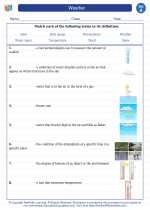Volcanoes
A volcano is a mountain that opens downward to a pool of molten rock below the surface of the earth. When pressure builds up, eruptions occur. In an eruption, gases and rock shoot up through the opening and spill over or fill the air with lava fragments. Eruptions can cause lava flows, hot ash flows, mudslides, avalanches, falling ash, and floods.
Types of Volcanoes:
- Shield Volcanoes: Wide, gently sloping mountains made of layers of lava from quiet eruptions.
- Composite Volcanoes: Steeper-sided volcanoes built by both lava flows and layers of ash and other volcanic debris.
- Cinder Cone Volcanoes: Steep-sided, generally small volcanoes that erupt gas-rich, basaltic lavas.
Volcanic Eruptions:
Volcanic eruptions can have a significant impact on the environment and human societies. They can cause climate change by releasing large amounts of sulfur dioxide into the atmosphere, which can lead to global cooling. Eruptions can also result in the destruction of property, loss of life, and disruption of air travel.
Study Guide:
- What is a volcano and how does it form?
- What are the different types of volcanoes?
- How do volcanic eruptions impact the environment and human societies?
- What are the safety measures to be taken during a volcanic eruption?
Understanding the different types of volcanoes and their impact on the environment and human societies is essential for understanding our planet's geological processes and for disaster preparedness.
[Volcanoes] Related Worksheets and Study Guides:
.◂Science Worksheets and Study Guides First Grade. Weather

 Activity Lesson
Activity Lesson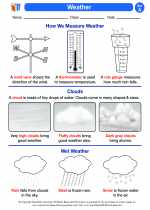
 Worksheet/Answer key
Worksheet/Answer key
 Worksheet/Answer key
Worksheet/Answer key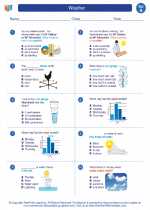
 Worksheet/Answer key
Worksheet/Answer key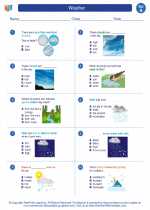
 Worksheet/Answer key
Worksheet/Answer key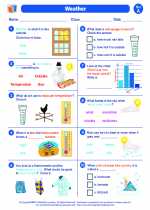
 Vocabulary/Answer key
Vocabulary/Answer key
 Vocabulary/Answer key
Vocabulary/Answer key